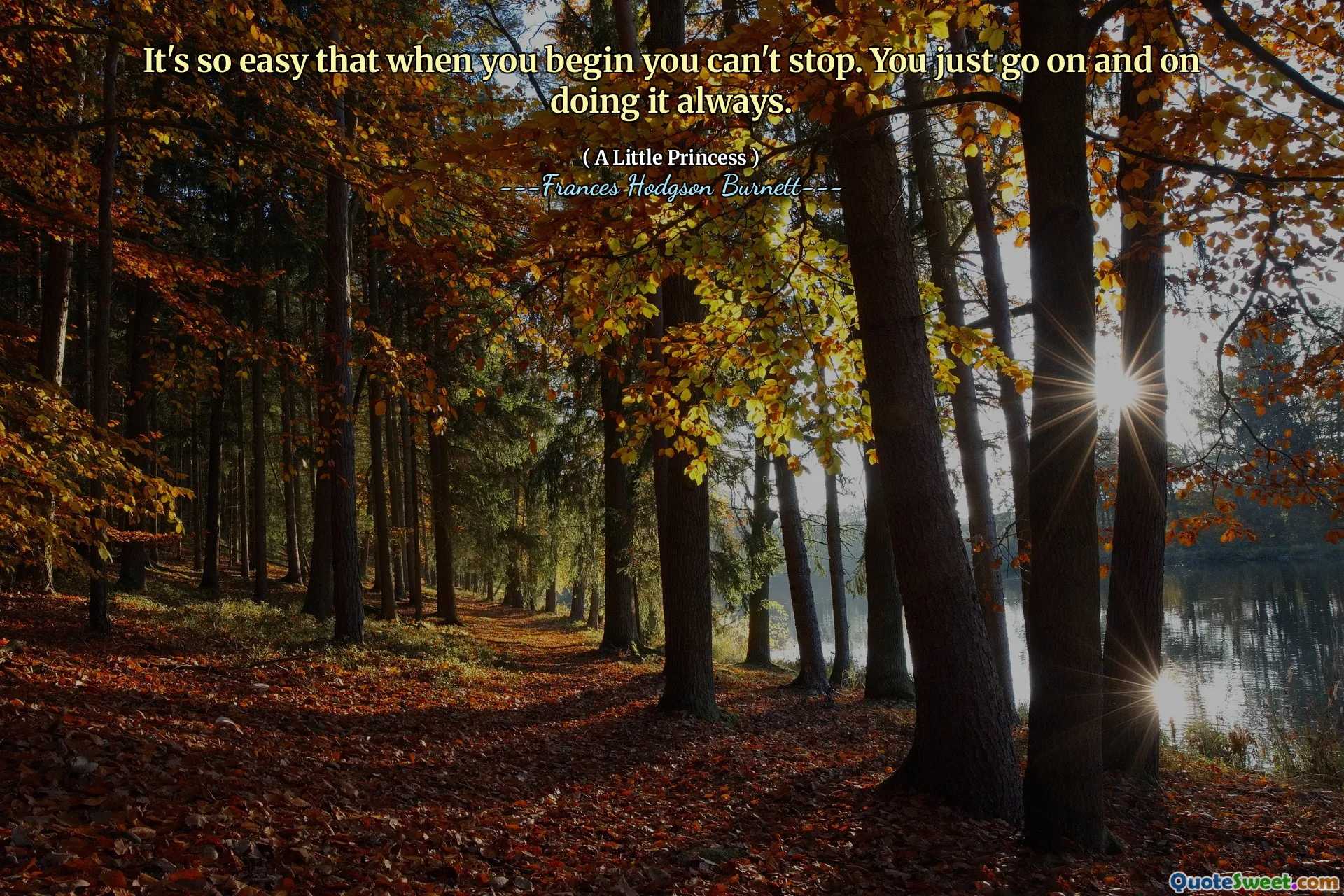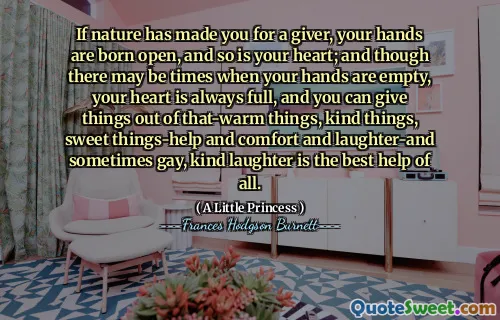
It's so easy that when you begin you can't stop. You just go on and on doing it always.
This quote captures the irresistible allure of activities or pursuits that garner our full attention and passion. When something is inherently simple or joyful, it often becomes addictive—drawing us in to repeat it endlessly. In the context of Frances Hodgson Burnett's 'A Little Princess,' it reminds me of the boundless imagination and resilience of children, who find joy in the simplest of things and often lose track of time when engaged in play or storytelling. Sometimes, we underestimate how quickly time slips away during moments of genuine happiness or deep engagement, which is precisely what makes such activities both delightful and potentially consuming.
This idea can also be seen as a reflection on the human tendency to pursue pleasures or passions that feel effortless but are undeniably addictive. For instance, hobbies like reading, painting, or playing an instrument can become so engrossing that hours pass unnoticed. The phrase underscores the importance of recognizing when our pursuits bring us joy without burden. At the same time, it prompts us to consider balance—while engaging passionately is positive, losing ourselves completely might lead to neglect of other responsibilities.
Furthermore, the quote hints at the captivating nature of habits, whether positive or negative. Good habits, like practicing a craft or nurturing relationships, can become a continuous cycle of satisfaction. Conversely, some compulsive behaviors, despite being easy, might have adverse effects in the long run. This duality invites us to reflect on what we find 'easy' and why it captivates us so deeply.
Overall, the quote resonates with the human experience of being drawn into pleasurable routines, reminding us of the importance of enjoying what we love but also remaining mindful of its impact.







